Episodes
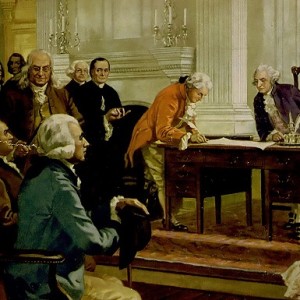
Tuesday Sep 29, 2020
The Constitution, Philosophy, and Pope John Paul II with Judge Leon Holmes
Tuesday Sep 29, 2020
Tuesday Sep 29, 2020
In an op-ed column in USAToday last week, Wyoming Catholic College senior Anthony Jones wrote: “I gathered with the entire student body of Wyoming Catholic College on Sept. 17, 2019, for a mandatory celebration of Constitution Day. We began with the Pledge of Allegiance, witnessed a lively panel discussion between professors on the history and modern relevance of America’s founding principles, and concluded by singing patriotic songs.”
Anthony Jones went on, “If you are a student at a typical American university, that description probably sounds foreign to anything you have experienced. Anti-Americanism has spread across college campuses like a wildfire, igniting rage and resentment against anything perceived as oppressive — even the American flag. As a result, most universities would likely shy away from a celebration of our nation’s founding in favor of more ‘inclusive’ events.”
On September 17 of this year, Anthony along with the rest of the student body of Wyoming Catholic College as well as faculty and staff gathered to celebrate Constitution Day 2020.
This year we heard from retired federal judge, Dr. Leon Holmes. Judge Holmes received his PhD in political science from Duke University and his JD from the University of Arkansas School of Law. He served sixteen years on the United States District Court for the Eastern District of Arkansas. Retiring from the court earlier this year, Judge Holmes is a visiting professor this fall at Wyoming Catholic College.
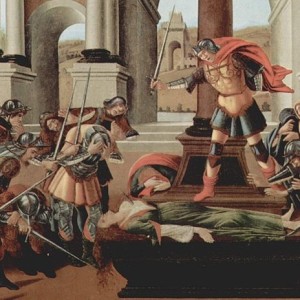
Tuesday Sep 22, 2020
The Founding of Rome and the Question of Honor with Dr. Pavlos Papadopoulos
Tuesday Sep 22, 2020
Tuesday Sep 22, 2020
It’s a word we don’t hear very often these days, but one that was of utmost importance to our ancestors—actual and figurative. In fact, they couldn’t live without it. The word is “honor.”
Ancient Romans practiced a timocratic—that is, an honor-loving—way of life. The Roman historian Livy in particular highlights the great deeds done for the honor of the city and for personal honor as well as the heinous and dishonorable crimes of, for example, the early kings of Rome—crimes that led to their downfall and exile.
Wyoming Catholic College sophomores have been reading Livy with Dr. Pavlos Papadopoulos. In this interview, Dr. Papadopoulos begins by responding to one of his own paper prompts.

Tuesday Sep 08, 2020
Lecture: "Beauty is Truth: How Poetry Enriches Science" by Dr. Tiffany Schubert
Tuesday Sep 08, 2020
Tuesday Sep 08, 2020
The tendency of science to reduce all of the world and life in it to predictable laws of physics is not new. And poets since William Wordsworth two hundred years ago have insisted that life ought not to be reduced.
Since the theme of this year’s Wyoming School was “Beauty is Truth: Science and the Catholic Imagination,” we looked to poets to help us inform our imaginations as we look at world around us, the heavens, and our own human nature.
The poetry we read and discussed is all available online for free.
- Henry Vaughn, “Water-fall”
- Gerard Manley Hopkins, “God’s Grandeur,” “Pied Beauty,” “The Windhover”
- William Wordsworth, “The World is Too Much With Us,” “The Tables Turned”
- Robert Frost, “Never Again Would Bird’s Song Be the Same”
- Edna St. Vincent Millay, “Euclid alone has looked on Beauty bare”
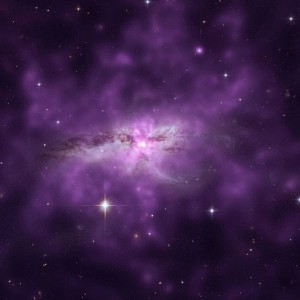
Tuesday Sep 01, 2020
Lecture: "Beauty is Truth: Beauty and Science" by Dr. Jeremy Holmes
Tuesday Sep 01, 2020
Tuesday Sep 01, 2020
“Saint Thomas, who was as simple as he was wise,” wrote Jacques Maritain, “defined the beautiful as that which, being seen, pleases: id quod visum placet. These four words say all that is necessary: a vision, that is to say, an intuitive knowledge, and a delight.”
At this summer’s Wyoming School of Catholic Thought, we began by looking at the Medieval cosmos. It is a beautiful vision that, alas, turns out not to be true. Then we looked at the modern vision—the vision of scientism—in which the universe is nothing but a randomly constituted result of elementary particles bumping into each other. It is a universe without goodness, beauty, or truth—save the truth (maybe) of mathematics and physics.
Yet the topic of our week together was, “Beauty is Truth: Science and the Catholic Imagination.”
After we reduced the Medieval cosmos to “fermions and bosons,” Dr. Jeremy Holmes began putting the world back together arguing that beauty is a necessary part of the scientific endeavor. His lecture was over an hour long, but will, I think, be well worth your time and concentration. Hearing it again brought great delight so, using Thomas' definition, it can be called a beautiful lecture.
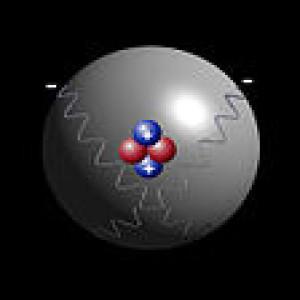
Tuesday Aug 25, 2020
Lecture: "Beauty is Truth: Shattering the Medieval Vision" by Dr. Jim Tonkowich
Tuesday Aug 25, 2020
Tuesday Aug 25, 2020
Duke University professor and philosopher Alex Rosenberg began an essay on Scientism with a series of questions and his answers:
- Is there a God? No.
- What is the nature of reality? What physics says it is.
- What is the purpose of the universe? There is none.
- What is the meaning of life?
- Why am I here? Just dumb luck.
- Does prayer work? Of course not.
- Is there a soul? Is it immortal? Are you kidding?
- Is there free will? Not a chance!
- What happens when we die? Everything pretty much goes on as before, except us.
- What is the difference between right and wrong, good or Bad? There is no moral difference between them.
- Is abortion, euthanasia, suicide, paying taxes, foreign aid, or anything else you don’t like forbidden, permissible, or sometimes obligatory? Anything goes.
- Does history have any meaning or purpose? It’s full of sound and fury, but signifies nothing.
At this year’s Wyoming School of Catholic Thought, Dr. Tiffany Shubert began by talking about the Medieval cosmos, a cosmos full of meaning, harmony, and truth. And last week’s After Dinner Scholar podcast was her lecture about the Medieval cosmos.
Next, we held a seminar discussing Alex Rosenberg’s essay “Scientism Versus the Theory of Mind” with its opening series of questions and answers. Before the seminar began, to avoid unnecessary intellectual whiplash, Dr. Jim Tonkowich spoke about how we got from a reality filled with the presence of God and with purpose to Rosenberg’s comment that, “Reality is the forsightless play of fermions and bosons producing the illusion of purpose.”
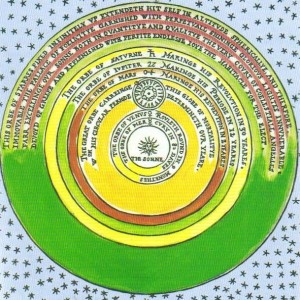
Tuesday Aug 18, 2020
Tuesday Aug 18, 2020
In the Epilogue to his book The Discarded Image: An Introduction to Medieval and Renaissance Literature, C. S. Lewis wrote, “I have made no serious effort to hide the fact that the old [Medieval] Model [of the universe] delights me as I believe it delighted our ancestors. Few constructions of the imagination seem to me to have combined splendour, sobriety, and coherence in the same degree. It is possible that some readers have long been itching to remind me that it had a serious defect; it was not true.”
Last week the annual Wyoming School of Catholic Thought was held here in Lander. The topic was “Beauty is Truth: Science and the Catholic Imagination.” Our readings in science and in literature considered this question of how we see the world, how we image it even before we think about it.
That began with a look at Medieval science and cosmology. The group read and discussed chapter 5 and the Epilogue from Lewis’ The Discarded Image guided by Dr. Tiffany Schubert who offered this introduction to the topic.
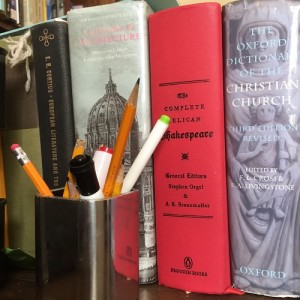
Tuesday Aug 11, 2020
Liberal Arts for Everyone (Part 2) with Dr. Kent Lasnoski
Tuesday Aug 11, 2020
Tuesday Aug 11, 2020
A gentleman, well into his 70s with a PhD in law is in the process of making his college years’ dream come true. He wanted to study classics as an undergraduate, but his father had other ideas. He wouldn’t pay for a degree in classics, and so my friend took a pre-law degree followed by law school. But the love for the classics and the liberal arts never left him. Now, in fact, he’s studying the Liberal Arts.
Last week the After Dinner Scholar featured a conversation with Dr. John Mortensen of the Aquinas Institute about The Great Books Core Curriculum, a joint venture with Wyoming Catholic College to offer distance learning courses in the Liberal Arts for undergraduate credit beginning this fall.
Our guest this week, Wyoming Catholic College theologian Dr. Kent Lasnoski, serves as the Academic Dean of the program.

Tuesday Aug 04, 2020
The Liberal Arts for Everyone (Part 1) with Dr. John Mortensen
Tuesday Aug 04, 2020
Tuesday Aug 04, 2020
Let’s be honest. Participating in an academic class by sitting in front of a screen is not the same as being physically present with the professor and other students. On the other hand, given current technology, it’s not all that bad.
Dr. John Mortensen is a former Wyoming Catholic College professor and dean and President of the Aquinas Institute. Along with some current Wyoming Catholic College faculty who are also associated with the Aquinas Institute, Dr. Mortensen taught online during the COVID shutdown this spring. And while it was hardly perfect, nonetheless it worked pretty well.
As a result, Dr. Mortensen proposed that Wyoming Catholic College work with The Aquinas Institute to offer twelve distance undergraduate courses, The Great Books Core Curriculum. And this fall, that curriculum will be available for full academic credit.
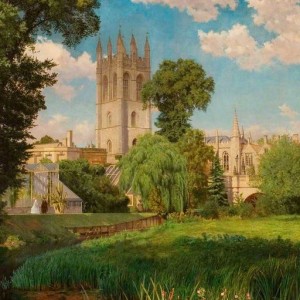
Tuesday Jul 28, 2020
"Learning in War-Time" and in Every Other Time with Dr. Jason Baxter
Tuesday Jul 28, 2020
Tuesday Jul 28, 2020
On September 1, 1939, Nazi Germany invaded Poland. On September 3, Great Britain declared war on Germany. On September 29, the Feast of St. Michael in the Anglican Church, the term began at Oxford University. Studies? Classes? Learning? In War-Time?
Academics at Wyoming Catholic College focuses on the great books of the liberal arts tradition—a tradition stretching back beyond the founding of Oxford in 1096. And Oxford in 1939 was still almost exclusively the liberal arts. What was the point of reading Homer, Herodotus, and Dante, studying Euclid, perfecting an understanding of Latin and Greek with a war going on?
On Sunday, October 22, 1939 at St. Mary the Virgin Church in Oxford, literary scholar and Oxford do C. S. Lewis stepped into the pulpit to answer that question? His sermon “Learning in War-Time” has become something of a classic and Dr. Jason Baxter studied that sermon earlier this month with high school students who attended Wyoming Catholic College’s PEAK Program.

Tuesday Jul 21, 2020
Ptolemy and the Shape of the Universe with Dr. Henry Zepeda
Tuesday Jul 21, 2020
Tuesday Jul 21, 2020
“The heavens call to you and wheel about you,revealing their eternal splendors,” Virgil told Dante at the end of Purgatorio 14 (148-151),“but your eyes are fixed upon the earth.For that, He, seeing all, does smite you.”
While we could blame light pollution or television or lack of interest or any number of other modern maladies, but it’s clear that, just as in Dante’s time, the heavens call and wheel about and us most of us never notice. If, for example, you know the phase of the moon today, you’re part of a tiny, tiny minority of modern people. Virgil accuses us as well, “your eyes are fixed upon the earth.”
Dante lived at the turn of the 14th century and in his writing used a model of the universe conceived in the second century by astronomer and mathematician Claudius Ptolemy. Born in AD 100 in Alexandria, Egypt, Ptolemy argued from observation of the heavens that the earth (a sphere) was at the center and around it the moon, sun, planets, and stars rotated.
Clearly we no longer believe that, but Ptolemy still has a great deal to teach us about observing the sky and marking it’s beauty and regularity. Dr. Henry Zepeda taught Ptolemy, Copernicus, and Galileo with high school students who have been here at Wyoming Catholic College for our PEAK Program.

